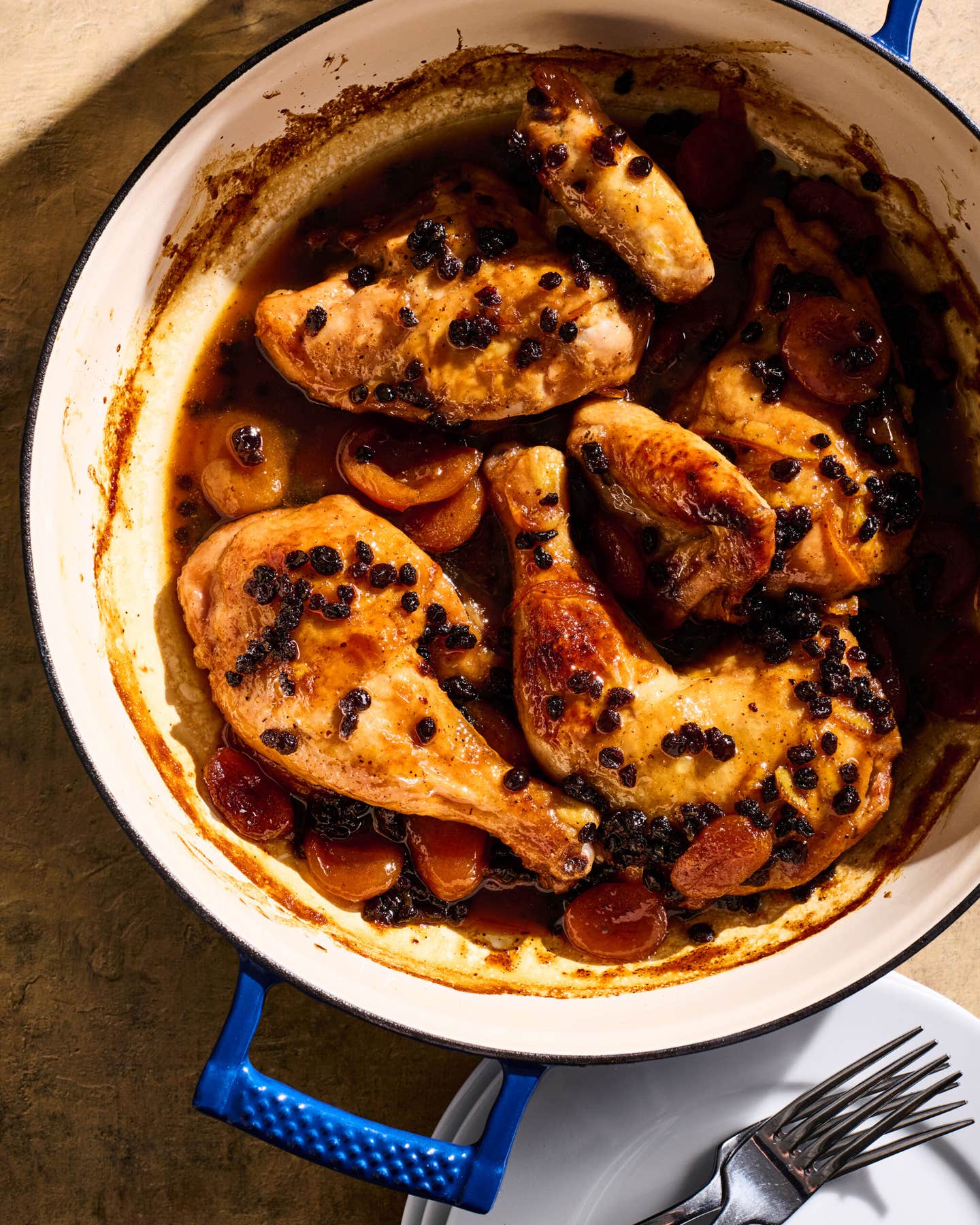
My love affair with the West African spice known as dawadawa began at a community potluck at the Malian Cultural Center in the Bronx, where I live. There, I was drawn to a cauldron of braised chicken in a tar-hued sauce that smelled like cocoa and something else—something punchy and mysterious. The dish, I learned, was fakoye, a specialty of the Tuareg people. One of its ingredients, dawadawa, made from the fermented seed of the locust bean tree, was the source of the musky aroma. I soon became obsessed with the spice. In the open-air markets of Mali, Nigeria, and Ghana, the seeds are sold pressed into golfball-size portions that can be dropped into soups or braises. At African markets in the U.S., I prefer to buy the split seeds, which I roast to revive the oils. This year, I'm grinding them for a dry rub for my holiday turkey, to give that tried-and-true American bird a small dose of West African-style funk.
Keep Reading
Continue to Next Story










